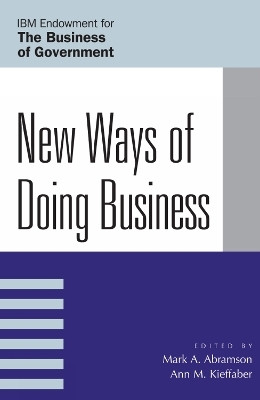New Ways of Doing Business(English, Paperback, unknown)
Quick Overview
Product Price Comparison
In their introduction, the editors of New Ways of Doing Business assert that in retrospect, it will be apparent that today's government, that of the early years of the 21st century, 'was undergoing its most significant transformation since the decade of the 1930's when direct government-delivered services grew significantly as part of the New Deal.' This newest volume in the IBM Endowment for the Business of Government series is an invaluable guide to navigating the sometimes controversial changes taking place in the internal operations of government, the delivery of services to citizens, and the delivery of environmental programs. Possibly the most monumental change taking place in our modern government is the lessening allegiance to the old model of in-house, in-departmental performance of tasks. The new model asks 'how and by whom can the tasks of government best be performed?' The answer sometimes lies with another inter-governmental department, leading to an in-house atmosphere of healthy competition and entrepreneurship, and sometimes with outside contractors. New Ways of Doing Business provides descriptions and guidelines for successfully navigating management under the new model. There are also dramatic new ways in which services to the public can now be delivered: via the Internet, via contracts with private organizations, and via faith-based initiatives and business improvement districts. Experts provide valuable checklists and guidelines and case studies exploring the merits and disadvantages of these new service delivery routes. Finally, New Ways of Doing Business explores what the editors call one of the most highly experimental policy arenas in government, that of the delivery of environmental programs. The authors of these articles explain via case study analysis many of the innovative programs currently in existence, and postulate that the traditional 'command-and-control' stance of government to businesses will be superceded by a flexibility that will allow for increased 'eco-efficiency' and attention to market-based regulatory tools.


